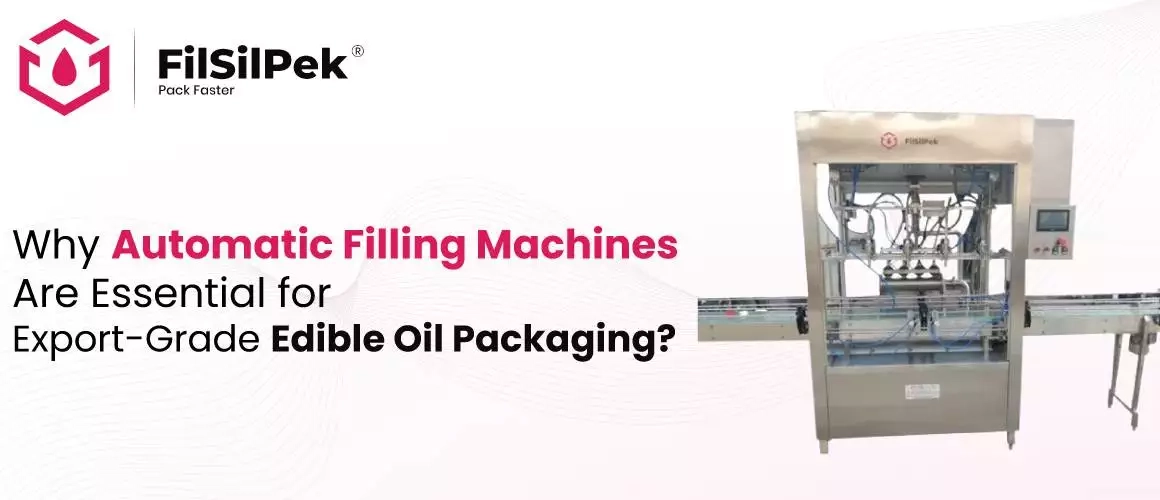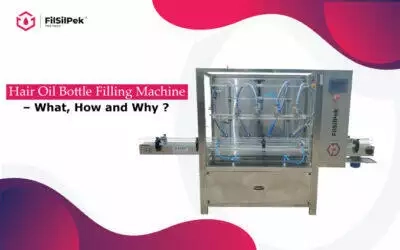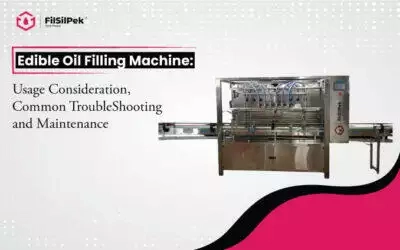Why Automatic Filling Machines Are Essential for Export-Grade Edible Oil Packaging?
Packaging for edible oil destined for export involves meeting accurate quality, safety, and regulatory requirements to ensure the product is suitable for international markets. Unlike standard packaging, export-grade packaging requires tight control over fill volumes, contamination prevention, and compliance with labeling and hygiene standards. This often involves advanced machinery and rigorous quality checks to maintain the integrity of the oil, protect it during transportation, and meet the stringent specifications of foreign markets.
Automation in the packaging process enhances efficiency and accuracy, crucial for meeting these export-grade standards. Automatic filling machines ensure consistent fill volumes, reduce human error, and streamline the packaging workflow. These machines can integrate with advanced systems for labeling, volume measurement, and sanitation, ensuring compliance with international regulations.
In this article, we will examine how automatic filling machines enable manufacturers to achieve export-grade edible oil packaging with precision, speed, and cost-efficiency.
Challenges in Export-Grade Packaging for Edible Oil
Export-grade packaging for edible oil involves a variety of technical challenges. From ensuring the correct fill volume to maintaining product integrity across international borders, each step of the packaging process must meet stringent regulations and quality standards. Any deviation can lead to non-compliance, wastage, or contamination, making precise and efficient packaging essential.
- Ensuring precise fill volumes for each container to avoid wastage or underfilling.
- Complying with international labeling standards, including nutritional information and original details.
- Preventing contamination during the packaging process, especially for food-grade products.
- Maintaining consistent packaging quality across large production runs.
- Meeting diverse packaging regulations across different export markets.
- Guaranteeing that packaging materials can withstand long transit times without compromising the oil’s quality.
- Managing the scalability of production to handle large export demands without compromising quality.
- Adhering to hygiene and sanitation standards in automated and manual processes.
The Role of Automatic Filling Machines in Achieving Export-Grade Packaging Standards
Automatic filling machines provide a seamless solution to the many challenges faced in export-grade edible oil packaging. They ensure that each step of the process is optimised for speed, quality, and regulatory compliance. Below are the key reasons why these machines are indispensable for manufacturers.
1. Accurate and Consistent Fill Quantities
Filling edible oil to the exact required volume is essential for both quality and compliance. Automatic filling machines utilise advanced technologies such as volumetric or gravimetric fillers to ensure that every container is filled to the precise quantity, maintaining consistency and reducing product wastage.
2. High-Speed Production with Minimal Downtime
High-speed operation is necessary to meet the demands of global markets. Automatic filling machines allow manufacturers to achieve high production rates without sacrificing quality. These machines can process large volumes in a short time, optimising production schedules and meeting tight deadlines.
3. Maintaining Hygiene Standards
The risk of contamination is a significant concern in the food industry. Automatic filling machines are designed with materials and mechanisms that promote hygiene, ensuring that the oil is safely packaged with minimal human contact. Stainless steel construction and automated cleaning features help maintain the necessary hygiene levels for export-grade products.
4. Versatile Packaging Options for Different Markets
Export markets often require different packaging formats and sizes. Automatic filling machines provide flexibility, accommodating a range of containers, from small consumer bottles to large bulk containers. This versatility enables manufacturers to adapt quickly to various market demands and packaging preferences.
5. Seamless Integration with Labeling and Compliance Systems
Compliance with regulatory standards is essential for export products. Automatic filling machines can integrate with labeling systems, ensuring that each package is correctly labeled with required information such as ingredients, batch numbers, and expiration dates. This helps manufacturers maintain compliance with international food safety regulations.
6. Long-Term Cost Efficiency
Though initial setup costs for automatic filling machines may be high, the long-term cost benefits are significant. Reduced labor costs, minimized product waste, and higher production efficiency help offset the investment. The ability to scale production while maintaining quality ensures better profitability over time.
7. Supporting Sustainability Goals
Sustainability is becoming an increasingly important factor in the global market. Automatic filling machines reduce oil spillage, packaging material waste, and energy consumption. Many of these systems are designed to work with eco-friendly packaging options, helping manufacturers align with global sustainability trends.
The Role of Automation in Scaling Production
As the demand for edible oil in export markets continues to grow, scaling production becomes a critical factor for businesses looking to stay competitive. Automation, particularly through the use of automatic filling machines, enables manufacturers to increase production capacity without sacrificing quality.
These machines are designed to handle high-volume operations, streamline workflows, and improve operational efficiency, making it possible to meet both tight deadlines and strict export-grade packaging standards.
1. Accurate Control Over Fill Volumes
Automatic filling machines offer advanced control systems that ensure exact fill volumes, minimizing discrepancies and maintaining consistency in every container, which is essential for meeting export-grade packaging standards.
2. High-Speed Operation with Minimal Downtime
Automated filling systems can operate continuously at high speeds, reducing the time required between production batches and ensuring that manufacturers can meet large-scale export demands efficiently.
3. Integration with Advanced Quality Control Systems
These machines can integrate with sensors and monitoring software to check fill accuracy, oil viscosity, and container weight, enabling real-time adjustments and maintaining consistent product quality.
4. Capability to Handle Various Oil Viscosities
Automatic filling machines are designed to work with oils of varying thicknesses, from light vegetable oils to more viscous products, ensuring efficient filling performance regardless of the product’s consistency.
5. Seamless System Integration
Automatic filling machines can be integrated with other automated processes such as capping, labeling, and sealing, creating a fully automated packaging line that maximizes efficiency and minimizes human error.
6. Data-Driven Monitoring and Reporting
Modern filling machines are equipped with digital sensors that provide real-time data on fill levels, production speed, and system performance, allowing manufacturers to monitor operations and make proactive adjustments to maintain optimal output.
Wrapping it up
Achieving export-grade edible oil packaging is essential for meeting international standards and ensuring product quality. Automatic filling machines provide the precision, efficiency, and scalability required to stay competitive in the global market.
If you’re looking to enhance your packaging process and meet the demands of export markets, we’d be happy to help. Contact us at [email protected] and let’s discuss the right solution for your business.
Hair Oil Bottle Filling machine – What, How and Why ?
In manufacturing and production era, technology continues to play a pivotal role in enhancing efficiency and precision. One such innovation that has…
Edible Oil Filling Machine: Usage Consideration, Common TroubleShooting and Maintenance
Edible Oil Filling Machines emerge as efficiency-driven instruments in the modern era of packaging of businesses, orchestrating the meticulous packaging…
How Automatic Shampoo Filling Machine Works?
Have you ever paused to consider the diligent planning that goes into ensuring each bottle is perfectly filled to the perfect capacity of shampoo flows effortlessly into its stylish containers…



